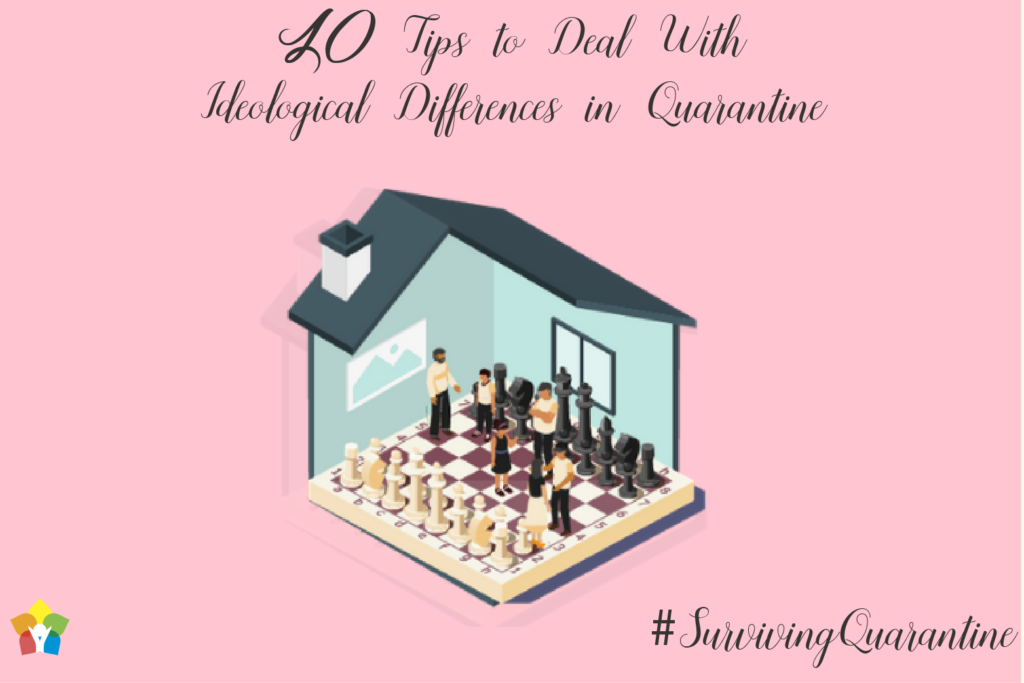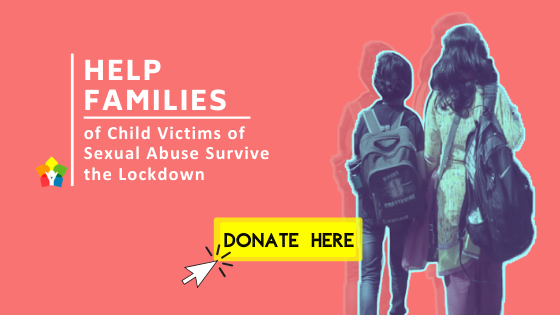10 Tips to Deal with Ideological Differences in Quarantine

Quarantine can turn houses into breeding grounds of conflict. Some conflicts may have always existed but there were distractions, distance and breaks from each other that helped us to ignore if not tolerate them.
While differences like food choices, preferences of TV channels, etc. used to be dealt with ease, they may become strenuous subjects during strenuous times. These are also times when conversations surrounding sensitive topics like politics, racism, religion, religious intolerance, etc. may surface and navigating these can cause strain on any relationship.
Discovering that your ideologies & beliefs differ from those you care about can be uncomfortable and often the immediate reaction is to check & correct the other person.
The entitlement of righteousness is the root of conflicts. Children think parents are orthodox, parents think children are naive. Is there any way of a healthy negotiation?
We could think of some tips, but these are undoubtedly evolving ideas.
1.Acknowledge children as individual beings
Children grow up with their own understandings, experiences, values and beliefs. A person’s individuality has many other influences apart from family. That often may not be in alignment with you and that’s okay.
For e.g. children might have a different political ideologies than the parents.
2. Try to Have a Healthy Discussion
Understand each other’s perspectives. This can also be a good exercise to know each other better which will further help in coping with each other. Discuss if the argument is solvable or if it is possible to mutually agree to come to a middle ground.
For. e.g. there are various theories about the spread of the virus and prevention strategies. You can speak to each other and try to explore each other’s perspectives.
3. Agree to disagree .
This is the most popular survival tool. Listen, acknowledge and move on.
For. e.g. some family members would see clanging plates and light candles as pointless but some other family members may find value in it. Let each do what they want to.
4. Certain conflicts must be dealt with only with facts and logic.
There’s no argument for stupidity.
For e.g., If one family member is always agitated about going out or treating the situation with carelessness, they should be reminded of their responsibility and how their behavior may put others at risk.
5. Understand power and abuse of power
Forcefully imposing opinions can be gratifying but it is often found to be damaging to the relationship. Personal egos and crazy fights are for the post quarantine times.
For. e. g. If you make your teenagers feel that their ideologies are naive that may impact their self-esteem.
Or If your teenager wants to support a campaign that is in contradiction to your political beliefs, don’t impose your opinions.
6. Take a break if the debate escalates to an angry discussion.
Be wiser and leave the argument. Losing your mind on each other, especially when you are forced together under the same roof can cause unpleasantness making life detrimental for everyone sharing the space. Be mindful to not have angry discussions in front of very young children.
7. It’s best to avoid a particular topic if it only ends in heated argument.
Avoid conversations that inevitably would end up in fights.
8. Hold on to your anchors.
Talk to your friends who understand you or to whom you can vent out to. That may give you some reassurance and perspective.
9. Be careful that you don’t act out in the online space.
Avoiding the volatile conversation in real life but spamming the common whatsapp group with content that supports your side of the argument, does not help. A ceasefire must be on all fronts- real & virtual.
10. Wait for the Lockdown to be over
One must do what they must for their peace of mind. It is understandable if your energy is wasted at the wrong place. Even after multiple discussions and arguments if your parents or children refuse to change their mind or if you cannot agree on a middle ground, take a deep breath and wait for the lockdown to be over. Till then revert to your usual coping mechanism.
***
(If you like this article, please consider donating to our ongoing donation drive to Help Families of Sexual Abuse Victims in Mumbai Survive the Lockdown)








